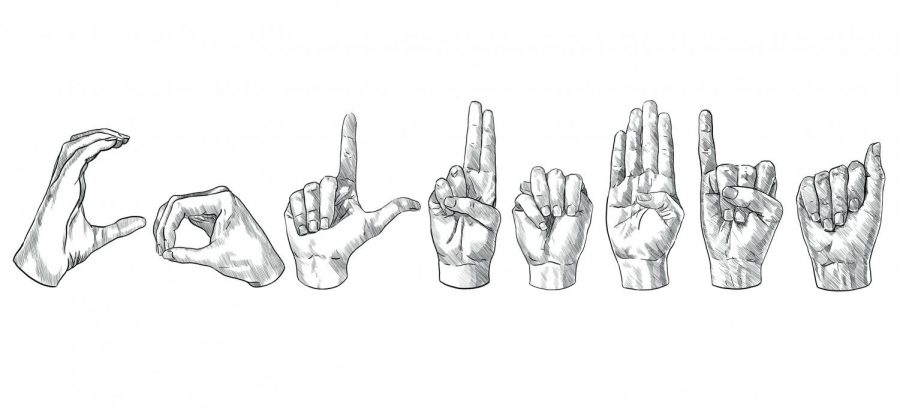ASL workshops expand deaf culture throughout the city
(Columbia)
September 6, 2016
Columbia’s American Sign Language-English Interpretation Department will bring back its ASL Institute Sept. 13, which offers sign language workshops to students and Chicagoans.
According to Columbia’s ASL Department, the workshops increase the skills and speed of beginner, intermediate and advanced signers. Workshop participants will meet weekly until Oct. 18.
Peter Cook, ASL Department chair and institute founder, said workshops are run by deaf instructors, giving participants instant introduction to the deaf community and ASL.
Cook, the college’s first deaf administrator, said he formed the ASL Institute two years ago to expand the department’s reach in the Chicago community.
“We started the ASL Institute because there were people outside Columbia who were interested in learning sign language,” Cook said. “They were calling our department but didn’t necessarily want to enroll in credited classes.”
Once Cook and ASL Department Director of Communications Lisa Butler realized there was a demand for non-credit ASL classes in the city, they decided to provide workshops open to the general public, he said.
The ASL Institute has been offering six-week courses for the past year, according to Butler.
Butler said the institute started small and has been growing in popularity. Each six-week course has a turnout of about 20–25 people who pay a fee of $110.
Courses must be reasonably priced to compete with other community-based ASL programs, Cook said.
“We want to make sure that we can offer high-quality teaching instructions at a low cost, so [people interested] can afford it,” Cook said.
Cook said those interested in the programs most often work with deaf individuals, have family members who are deaf or hard-of-hearing or are simply interested in learning the language.
“The institute gives people an opportunity to get their feet wet to see if this is something [they] want to pursue,” Butler said.
She added that she sees many people in the education field enroll in the ASL Institute to better communicate with faculty and students who are deaf.
Cook said many participants enroll as students in Columbia’s ASL program after the workshops.
“[ASL is] an important culture that people [typically] miss out on learning,” said Ashlyn Backe, sophomore American Sign Language major.
Ethan Kjelland, a senior American Sign Language major, said it is important people outside the deaf community learn ASL.
“It shows there is this whole other group that’s different than what we, as hearing people, may be used to,” Kjelland said.
Cook hopes these workshops will draw attention to Columbia’s American Sign Language program, which he said is one of the college’s most overlooked.
“The ASL Institute is a great place for anybody who is interested in learning American Sign Language in a safe, comfortable, friendly environment,” Cook said. “[Participants] may be slightly out of their comfort zone in a good way.”








